Cover Gallery: Bridal Wave
June means the start of wedding season. These Post covers show beautiful brides of the twentieth century.
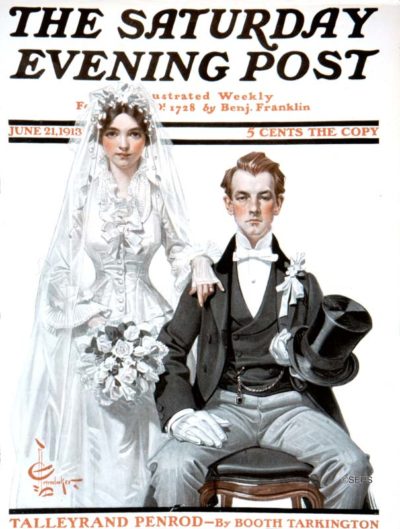
J. C. Leyendecker
June 21, 1913
In this painting by prolific artist J.C. Leyendecker, he shows a solemn couple having their photograph taken. Leyendecker illustrated the nuptial moments of other pairs, including Romeo and Juliet and Henry V and Catherine Valois. It appears this couple has got the “wedded” part down, if not the “bliss.”
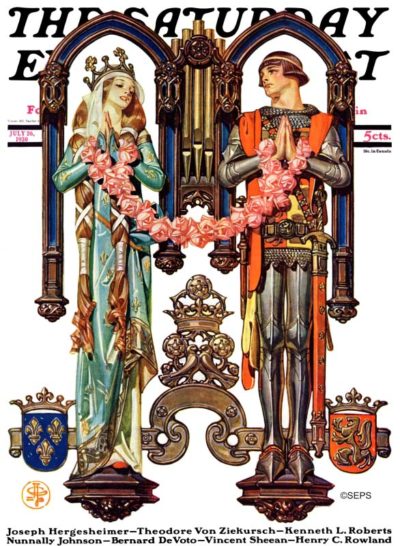
July 26, 1930
J.C. Leyendecker
Catherine of Valois married Henry V in June of 1420 and later gave birth to Henry VI. Henry V died shortly after his son’s birth, leaving the young Catherine a widow and her infant son the King of England.
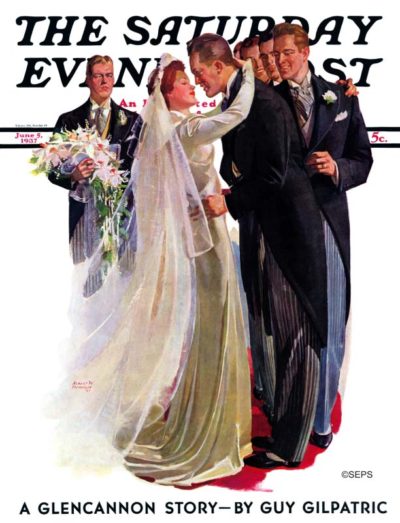
Albert W. Hampson
June 5, 1937
The groom doesn’t look too happy about this scenario. Given the line of enthusiastic groomsmen, the bride may not have enough energy for the honeymoon.
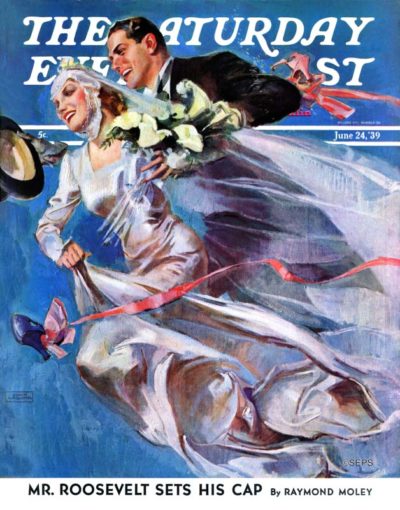
John LaGatta
June 24, 1939
LaGatta had an uncanny knack for translating from model to canvas an appreciation and sensual perspective of the female figure. LaGatta began his artistic process by sketching the models in charcoal and pastels and then would almost always refine his interpretation into an oil painting. His subjects were sophisticated, upper-class men and women with long graceful figures and with classic clothing designs. His images gave the impression that the models didn’t have a care in the world, as in this 1939 cover of a couple running off after their wedding ceremony.
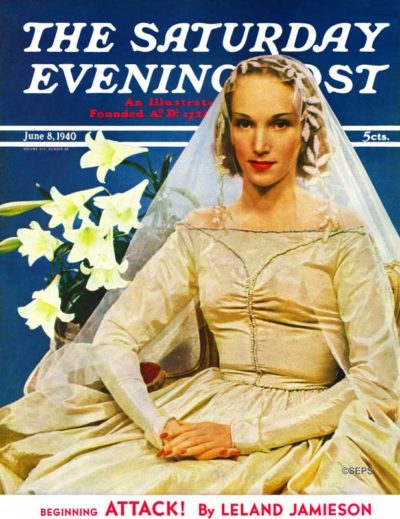
Wynn Richards
June 8, 1940
This 1940 bridal photograph was Wynn Richards’ one and only cover for the Saturday Evening Post. Richards was born “Martha Kinman Wynn” before marrying Dorsey Eugene Richards, according to her biography.. She opened her own photography studio in 1919, but left the business to a friend after a social scandal that involved her taking nude portraits of a local school teacher. Richards divorced her husband and left their son with his grandmother before opening a new portrait studio a few years later. Initially signing her work “Matsy Wynn Richards,” she learned that revealing her gender could hinder her career, and changed her signature to “Wynn Richards.” Richard’s work mostly appeared in Vogue, Harper’s Bazaar, and Mademoiselle magazine.
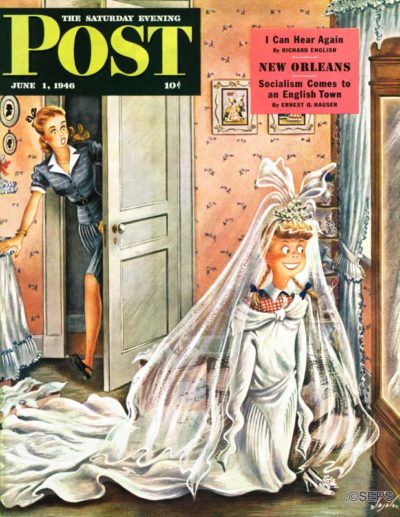
Constantin Alajalov
June 1, 1946
[From the editors of the June 1, 1946 issue of the Post] Just after Constantin Alajalov finished his kid-sister painting, he set out from New York for Florida, to work on other cover assignments. The artist went by automobile, and sent back a short report on his three-day journey. The highways are full of displaced persons at the moment, sorting themselves out after the great disruption of war, and we think Alajalov’s account is a thumbnail picture of America in Transition. “The first day,” he wrote, “I picked up a corporal just back from Tokyo, hitch-hiking to Alabama to marry a girl there. The second day I picked up a marine hitch-hiking to Jacksonville, Florida, to get his wife. The third day I picked up a sailor who was going to Miami for any girl he could get.”
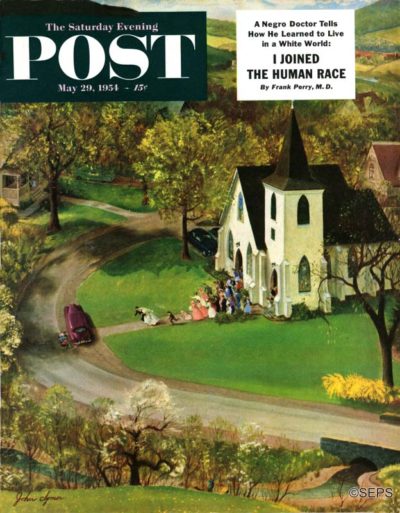
May 29, 1954
John Clymer
[From the editors of the May 29, 1954 Post] Away go the newly-marrieds into their brave new world and thank heaven it isn’t raining. John Clymer is nice about weather; on his covers it hardly ever rains. That church, says Clymer, is located in one state and the landscape in another state, and the honeymoon will take place in the state of bliss always visited on such trips.
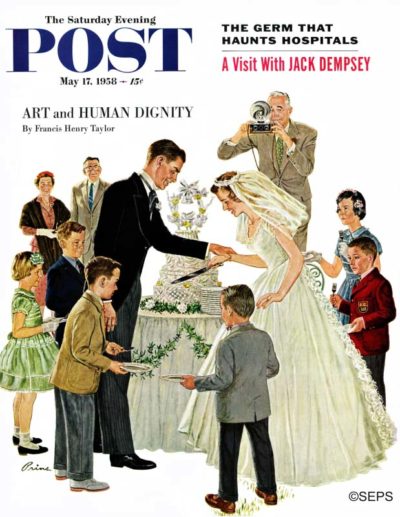
May 17, 1958
Ben Prins
[From the editors of the May 17, 1958 Post] Here come the bride and groom to carve the cake. Two-handed carving isn’t an efficient way to dismember food, but He and She have just become One and this is the tender symbol of their unity. They probably aren’t hungry; in a day or two food will become attractive, but right now they are not of this world, they are up in the clouds, in a state of bliss where folks subsist on love alone. Conversely, those youngsters have their feet on the ground and their eyes on the cake. Oh, the girls may save a few crumbs to put under their pillows to incite romantic dreaming, but the boys will put their cake where it belongs, and let’s hope they don’t consume enough to turn dreams into nightmares. Well, a toast to artist Ben Prins’ newlyweds: bon voyage, all the way through life!